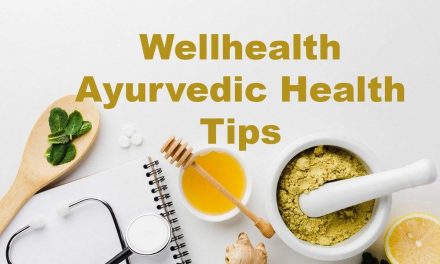Gynecologists are essential for women’s health. They focus on the female reproductive system and can treat many health issues women face at different ages. From adolescence to menopause and beyond, gynaecologists provide excellent medical care and advice on reproductive and overall health. This blog explains why it’s essential to visit a gynaecologist. It covers prevention, early diagnosis, and proper ways to care for women’s health.
1. Preventive Health and Early Detection
Gynaecologists play an essential role in detecting diseases early. Women should visit gynaecologists as often as their doctor says. Many gynaecological problems can be diagnosed early before they become serious. Well-woman exams are a vital part of gynaecology. These exams help prevent diseases like cancer, infections, and other reproductive issues.
2. Breast Cancer Screening and Mammograms
Gynaecologists are not radiologists, but they help check for breast cancer. During regular visits, gynaecologists examine patients’ breasts to find any lumps. If they find issues, they can send patients for mammograms or other tests. This is especially important for women over 40 or those with a family history of breast cancer. Gynaecologists make sure these patients get the needed tests on time.
3. Reproductive Health and Family Planning
Gynaecologists are the doctors women go to for advice on their female organs. Women see gynaecologists for issues like periods, family planning, or infertility. Gynaecologists can help women through their reproductive years. They choose the proper birth control based on a woman’s life, health, and desire for children. Gynaecologists also offer family planning advice.
- Management of Chronic Conditions
Gynecologists treat women’s health issues. They handle many diseases that affect women of childbearing age and treat chronic conditions that are more common in women. These include endocrine system disorders, immune deficiencies, and reproductive system problems. Women may also have unexplained pelvic pain. PCOS is a common hormone disorder in women of childbearing age that causes irregular periods. Gynecologists use medicine, medications, and surgery to diagnose and treat endometriosis.
5. Emotional Wellbeing and Support
When it comes to women’s health, we look at both physical and emotional wellbeing. Women with hormonal changes, pregnancy or menopause may see a gynaecologist if they have mental health issues. A study found that taking vitamin D before and during pregnancy can lower the risk of depression and anxiety in women of childbearing age. The researchers are doing an international study to look at this more closely.
At what age should a woman first visit a gynaecologist?
Any woman should have regular visits to a gynaecologist between the ages of 13. The first visit is a learning experience. They will learn about menstrual health, HPV vaccines, and general reproductive health. Girls should also see a gynaecologist once they become sexually active or reach puberty, even if they have no problems.
How does a gynaecologist help with menstrual problems?
Gynaecologists can help with different menstrual problems. These include heavy bleeding, a lot of discomfort, irregular periods, or missing periods. Sometimes, these issues are caused by conditions like endometriosis, fibroids, or PCOS. Gynecologists can treat these issues with medication, hormone therapy, lifestyle changes, or surgery.
What should I expect during my first gynaecological visit?
When you visit the gynaecologist for the first time, expect to answer some questions about your health history, menstrual cycle, and any sexual activity or concerns you might have. If you’re at the right age, you may also have a pelvic exam and possibly a Pap smear. Your gynaecologist will likely talk about topics like prevention, vaccinations, and women’s reproductive health. Remember, it’s super important to feel comfortable asking any questions you have during your first visit.
What is the role of gynaecologists in menopause care?
Gynaecologists assist women in managing the examinations that accompany them during the menopausal periods. This involves treating syinvolvessuch as ‘hot flushes’ ‘night sweats‘ and ‘mood swings‘., They may prescribe particular medications, for example, HRT or non-estrogenic preparations, to control the symptoms. It also focuses on dietary advice concerning bone health, cardiovascular health, and sexual health of women post-menopausal.
How do gynaecologists help with sexual health?
Our gynaecologists are fully capable of answering any issues that relate to sexual health, which include sexual dysfunctions, painful intercourse, and issues about sexuality. They also treat diseases of sexual transmission and offer consultations on disease-preventing measures, including the use of condoms. This aspect helps women to remain sexually healthy or receive regular reminders about the ways, methods and general options of protection and contraception.
Do gynaecologists offer advice on contraception?
Of course, gynaecologists offer helpful information about different ways of protection. Some of the areas covered include pills, IUDs, implants, condoms, and tubal ligation. A woman can consult with her gynaecologist to select the best type of contraception depending on her health, lifestyle and personal preference, and the gynaecologist will be able to tell her about the possible advantages and disadvantages of the contraceptive chosen as well as help her deal with the side effects and complications.
Can a gynaecologist help with urinary incontinence?
Yes, gynaecologists do treat urinary incontinence, especially in females who develop some degree of leaking due to weak pelvic floor muscles resulting from childbirth or menopause. Doctors may suggest that such measures as pelvic floor exercises, physical therapy, medications, and operations may be helpful. They can also treat additional urinary complications like bladder infection or pelvic organ prolapse.
How do I choose the right gynaecologist for me?
Making the right choice is essential when a woman selects a gynaecologist. Having a provider who can facilitate a sense of relaxation and comprehensively address your concerns is beneficial. It is essential to consider their qualifications and experience, along with their personality and mannerisms in patient interactions. You can also use personal referrals or consultations from friends or relatives or read reviews on the internet. It is essential that the patient feels comfortable discussing some issues with the gynaecologist.
Conclusion
Gynecologists are critical to women’s health, and they possess specialized training and experience in many different fields, including reproductive health, family planning and everything from chronic diseases to mental health. Well-gynecologist visits for women as part of a woman’s lifelong process of enhancing her health and wellness hold massive value in this aspect as it enables women to be empowered with helpful health information regarding the female reproductive system in order to take charge of their health at any one time in their lives.





